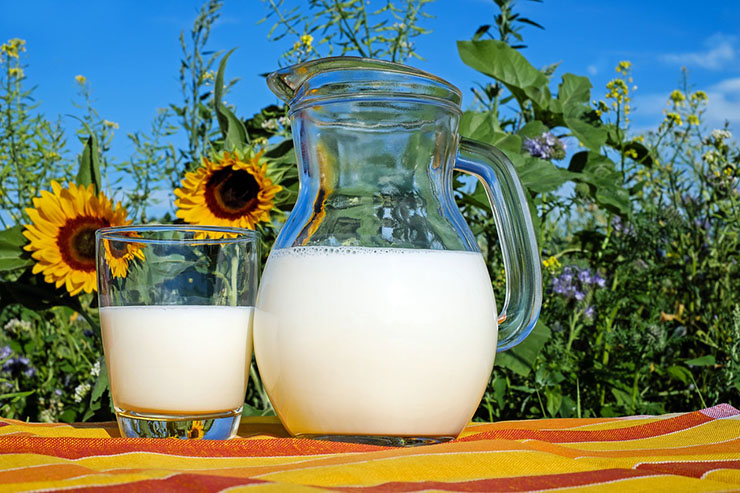
Sponsored Links
pixabay.com
When it comes to maintaining a healthy diet, it’s hard to know what’s true and what is just pure marketing. The famous “Got Milk?” ad campaign insisted that milk is an incredible health drink that everyone should be downing in great quantities. But human beings are the only species that ever drinks milk past infancy – why is that?
Turns out, the answer to whether daily milk consumption is a smart move depends on each individual. We’ll break down the good and the bad of daily milk consumption so that you can make an informed decision for yourself and your family.

The Good
Relentless marketing aside, there really are some good reasons to drink milk every day.
It may help with weight loss
Those looking to shed some pounds could be helped by adding extra protein into their diets, and milk is an affordable and nutritious way to get it. A higher level of vitamin D in the blood has also been linked to fat burning, as has increased intake of dietary calcium. The exact mechanism is not known, but a 2010 study of people engaged in a diet regimen showed that those who drank the most milk lost more weight.
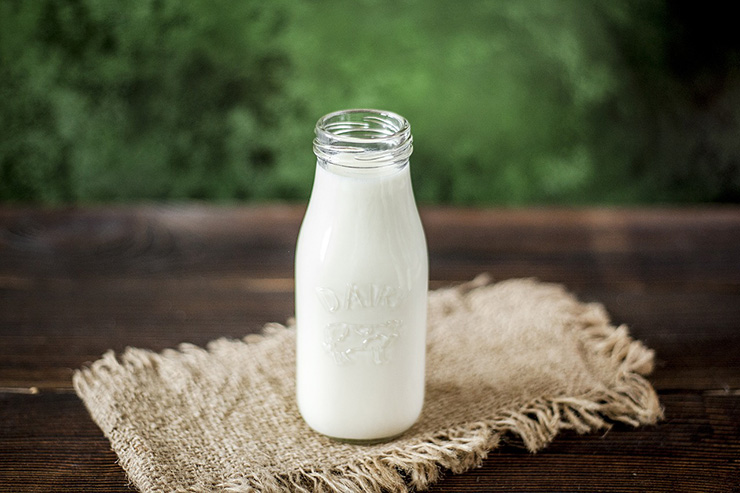
pixabay.com
It’s a great source of protein
Cow’s milk offers a good amount of protein, one gram per ounce, so that a standard eight ounce glass offers eight grams of protein. It is high quality protein, too, meaning that it contains all the essential amino acids. Manufactured protein powders can’t match milk in this regard. Drinking milk with a meal also promotes satiety, because protein slows digestion and will keep you feeling full longer.
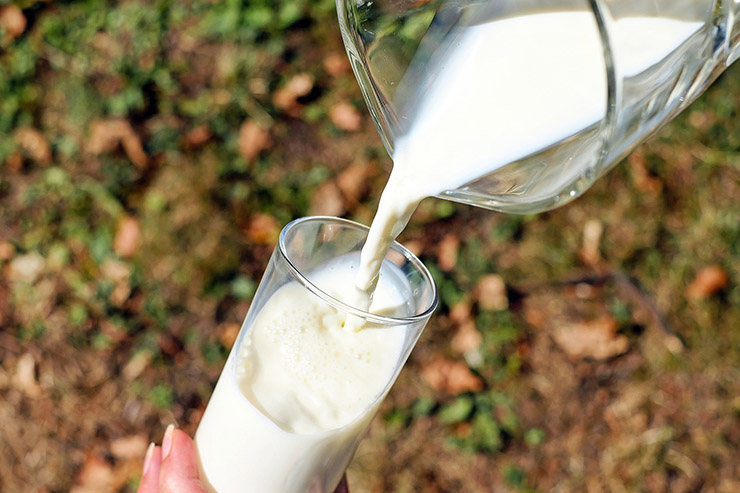
pixabay.com
More nutrition for fewer calories
Along with its good protein, milk also offers more nutrition for relatively few calories overall. In every glass of milk you will get calcium, protein, iodine, potassium, phosphorus, and vitamins B2 and B12. An eight ounce serving of skim milk has only 90 calories; that much whole milk only racks up 136 calories. It may be worth it to drink the whole milk, as vitamin A is removed from milk along with fat.

It helps maintain muscle mass
People engaged in strength training have better results when their post-workout diet includes the right ratio of protein to carbohydrates. Milk has got it, plus is rich in branched chain amino acids, which play a major role in muscle growth and maintenance. The animal-based protein in milk is also more readily absorbed than that from other sources.
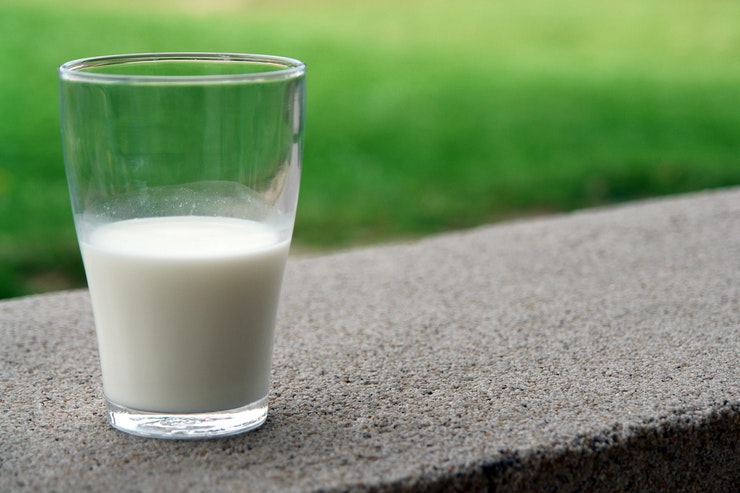
It’s a great source of calcium
Milk’s strongest reputation probably has to do with its calcium content. Indeed, many people are deficient in calcium and milk is an easy way to get more of the stuff. (It also contains potassium and vitamin D, two other vital nutrients of which people often don’t get enough of.) Though calcium can be obtained from several other sources – green leafy vegetables, nuts, seaweed, and sesame seeds – you’d have to eat 10 cups of spinach to match the calcium in 8 ounces of milk. No one except Popeye likes spinach that much.

pixabay.com
Sponsored Links
It slows the aging process
The combination of calcium and vitamin D also plays a heavy role in maintaining bone density as we age, which can keep you feeling younger. Drinking milk every day can decrease the likelihood of developing osteoporosis. However, note that the critical time to be focusing on your milk consumption is up to the age of 30. It is during our young lives that bones gain mass and develop their structure. But vitamin D is not just for bones; it also helps maintain muscle mass as we age.
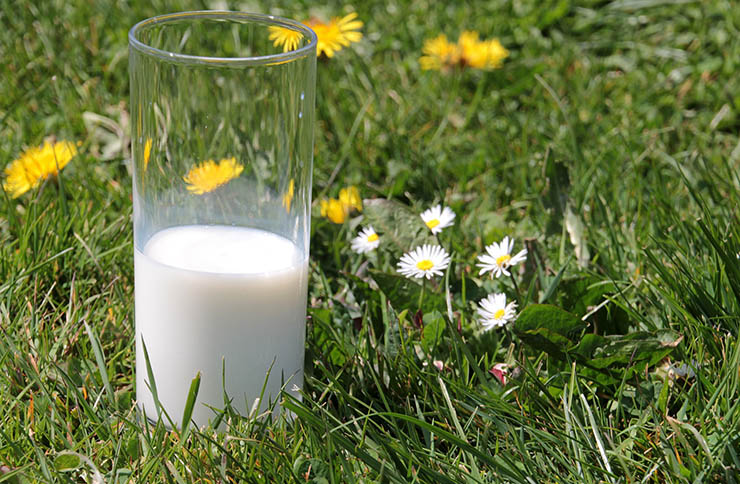
pixabay.com
It could protect against diseases
We have been trained to watch out for fat, but when it comes to milk, many of the nutrients are found in its fat content. This includes vitamins A, K2, and omega-4 fatty acids. Interestingly, this fat/vitamin combo is precisely why experts think milk may help protect from illnesses like cancer, diabetes, and heart disease. A study in the British Medical Journal seems to point to fermented milk products, like cheese and yogurt, as especially preventative. Researchers say that for every serving of these foods consumed by participants, the rate of mortality went down by 15%.

pixabay.com
The Bad
It can cause acne
Dairy is known to be inflammatory, and this can manifest as acne in some people. If you have this response and drink milk every day, your acne may never clear up. If you love the stuff but hate what it does to your skin, try plain yogurt or kefir instead, which are less likely to cause inflammation that shows up on your face.

pixabay.com
It can cause bloating
Not everyone has this problem, but the lactose intolerant among us know exactly what dairy-related bloating feels like. The inability to process dairy efficiently is a painful problem, and even a teaspoon of half-and-half in coffee can lead to a miserable day. Though humans by and large have evolved to tolerate dairy even in adulthood, we are the only species that does this, as well as the only species to drink the milk of another animal. So perhaps the lactose intolerant are the more “normal” ones.

It can cause upset stomach and digestive issues
The milk you find on grocery shelves these days is pretty highly processed and contains various bacteria, both good and bad. Over time, drinking milk every day can lead to an imbalance in your gut microbe. The imbalance can cause several long term health conditions, including poor digestion, brain fog, and migraines. If you are experiencing these symptoms, it might be worth cutting back on dairy to see if that makes a difference.

pixabay.com
It might not work as well without magnesium
A lot has been made of the benefits of getting enough calcium, but it turns out that the calcium we consume might not be doing its best work unless it can partner with magnesium. Our bones are made of both calcium and magnesium, and an imbalance in the ratio of the two will actually decrease bone strength. In fact, a study in the British Medical Journal suggests that drinking milk without also getting enough magnesium actually leeches calcium from bones rather than augmenting it.
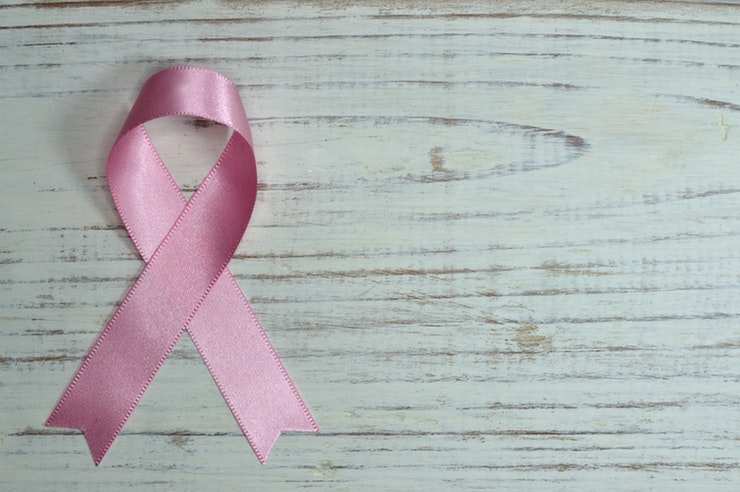
Sponsored Links
It may lead to an increased risk of cancer
This is where you kind of have to throw up your hands and just try to make the best possible decision for yourself even though the evidence is contradictory. While some research suggests that drinking milk every day can lower your risk of cancer, other studies conclude the exact opposite. The British Medical Journal, for example, says that people who drink three or more glasses of milk per day have a 44% higher risk of cancer, and women who consume two or more glasses per day are twice as likely to be diagnosed with ovarian cancer. The growth hormones in non-organic milk may also increase cancer risk.
So there you have it. Milk may be a nutritionally complete food source that only humans are smart enough to keep drinking their whole lives. On the other hand, it may send you running to the doctor…or the toilet. Milk is great in its ability to provide a lot of nutrition for relatively few calories, but it can be difficult to digest, especially as adults. In the end, it’s up to each individual to decide if milk and other dairy products help or hurt. There is no blanket answer, but given milk’s enormous popularity, we are sure that the research will go on.
